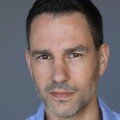This story is free to read because readers choose to support LAist. If you find value in independent local reporting, make a donation to power our newsroom today.
Veteran Hong Kong politician says with stability restored it’s time to fix economy
STEVE INSKEEP, HOST:
Twenty-seven years ago this week, the U.K. backed out of one of its colonial possessions. The U.K. returned Hong Kong to China, along with its skyscrapers, its prosperous economy, its financial markets and its partly democratic institutions. The separate system was supposed to last half a century, but the mainland has since imposed national security legislation, after sometimes-violent pro-democracy protests. On a visit to Hong Kong, NPR's John Ruwitch spoke with a lawmaker who is one of the most recognizable figures in the pro-Beijing camp.
REGINA IP: That's me as director of immigration.
JOHN RUWITCH, BYLINE: I meet Regina Ip in her office in the Legislative Council building. The last time I set foot inside was five years ago, after demonstrators smashed their way in and ransacked the place. Today, where protesters once massed on a lawn outside, there's an art installation. Ip says the tranquility is thanks to the national security legislation.
(SOUNDBITE OF MUSIC)
IP: Of course, the immediate impact is stability and security have been restored. The riots stopped immediately, as soon as Beijing's national security law was enforced.
RUWITCH: Beijing's national security law was imposed on Hong Kong in mid-2020. This year, the city's legislature passed its own national security law - one that Ip, incidentally, tried unsuccessfully to create two decades ago, as the city's security minister.
IP: I wish I had done it 20 years ago, but at that time, Hong Kong people had no sense of national security threats.
RUWITCH: The protests five years ago cast a pall over the economy and the future, but since then, the new laws, and the single-minded security focus of the Hong Kong government, have been cause for concern to some. Critics say basic rights like freedom of speech have been rolled back, and Hong Kong's vaunted rule of law eroded. Ip says that's overblown.
IP: As for the chilling effect, it's been repeated only by the same circle of people.
RUWITCH: A circle that includes the media and people involved with foreign political groups, governments and NGOs, she says. Most of the territory's 7.5 million people are unaffected, but polls last year showed that happiness in Hong Kong hit a multi-year low, as did the popularity of the city's leader, John Lee.
Are you happy with where Hong Kong is now, with where these past five years have brought the city-state?
IP: I think we are recovering more slowly than desired, but we are climbing out of our doldrums.
RUWITCH: Climbing slowly. GDP grew by just 3.2% last year, after contracting the year before. In the first quarter of this year, it was up 2.7%. China watcher Stephen Roach - a one-time China bull who lived and worked in Hong Kong for years - made waves this year with a declaration that Hong Kong is, quote, "over." Ip has refuted that, but she told NPR the focus of policy now has to change.
IP: We have completed our defense mechanisms. Now we must get on with restructuring our economy, revitalizing our economy and rebuilding our society.
RUWITCH: She proposes a big change.
IP: So we can't just rely on the old laissez-faire, market-driven philosophy.
RUWITCH: This is radical. Hong Kong is almost synonymous with free markets, but Ip says the city has fallen behind its peers, particularly in tech, and now needs a strategy, an industrial policy, like mainland China and the United States.
IP: You have to co-invest. You have to subsidize. We didn't do any of that, so now we are in a catch-up game.
RUWITCH: And what about elections? A Pew poll last year showed that most adults in Hong Kong still support the idea of multiparty democracy. Ip, in fact, wrote a thesis on democracy in Hong Kong for a master's degree at Stanford in the mid-2000s, but she says it's become clear that Hong Kong is not prepared.
IP: Our democracy movement became hijacked by anti-China elements, literally. My democratic colleagues became more and more anti-China.
RUWITCH: And she says that could never stand in a city that ultimately answers to Beijing.
John Ruwitch, NPR News, Hong Kong. Transcript provided by NPR, Copyright NPR.








